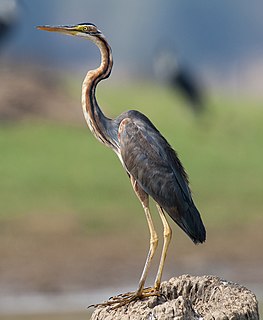
Arthur Cecil Pigou was an English economist. As a teacher and builder of the School of Economics at the University of Cambridge, he trained and influenced many Cambridge economists who went on to take chairs of economics around the world. His work covered various fields of economics, particularly welfare economics, but also included Business cycle theory, unemployment, public finance, index numbers, and measurement of national output. His reputation was affected adversely by influential economic writers who used his work as the basis on which to define their own opposing views. He reluctantly served on several public committees, including the Cunliffe Committee and the 1919 Royal Commission on Income tax.

Earl of Iddesleigh, in the County of Devon, is a title in the Peerage of the United Kingdom. It was created in 1885 for the Conservative politician Sir Stafford Northcote, 8th Baronet, of Pynes in the parish of Upton Pyne near Exeter in Devon and lord of the manor of Iddesleigh, 28 miles north-west of Pynes. He served as President of the Board of Trade, Secretary of State for India, Chancellor of the Exchequer, First Lord of the Treasury and Foreign Secretary and was Joint Leader of the Conservative Party from 1881 to 1885. Northcote was made Viscount St Cyres, of Newton Saint Cyres in the County of Devon, at the same time he was given the earldom. This title is also in the Peerage of the United Kingdom.
Waugh is a surname, and may refer to:
Marryat or Marryatt is a surname. It may refer to:
Goff is a surname with several distinct origins, mainly Germanic, Celtic, Jewish, and French. It is the 946th most common family name in the United States. When the surname originates from England it is derived from an occupational name from German, Welsh, Cornish and Breton. The German Goff means a godly person, a strong warrior, or a priest. The Welsh gof and the Breton goff means "smith". The English-originating surname is common in East Anglia, where it is of Breton origin. The Welsh name is a variant of the surname Gough, and is derived from a nickname for someone with red hair. The native Irish name is derived from a patronymic form of the Gaelic personal name Eochaidh/Eachaidh, which means "horseman".
Arkwright is a surname, deriving from an archaic Old English term for a person who manufactures chests, and may refer to:
Symonds is a surname with English origins, derived from Simon. Notable people with the surname include:
Lucas is a surname. Notable people with the surname include:
Cope is a surname, and may refer to
Currie is a surname in the English language. The name has numerous origins.
Veitch or Vetch is a Scottish surname, and may refer to:
Osborn is a patronymic surname derived from the Old English "Osbern" and possibly the Old Norse name "Åsbjørn", and may refer to:
Cowley is a surname in the English language.
Hare is a surname. Notable people with the surname include:

Heron is a surname originating in the British Isles and Normandy during the Middle Ages.
Pollock is a surname. In some cases, it originates as a locative name derived from Upper Pollock, Renfrewshire, Scotland. An early bearer of a form of this surname is Peter de Pollok, in about 1172–1178. In other cases, the surname is derived from the Middle English personal name *Pollok. An early bearer of a form of this surname is Roger Pollok, in 1332.
Mander is a surname. Notable people with the surname include:
Moulin and du Moulin are French-language surnames. "Moulin" literally means "mill".
The 1926 Birthday Honours were appointments by King George V to various orders and honours to reward and highlight good works by citizens of the British Empire. The appointments were made to celebrate the official birthday of The King on 3 June, but it was announced on 20 May that due to the national strike, the King had approved the Prime Minister's recommendation to delay the publication of the list until 3 July 1926. The honours were effective to 5 June 1926. Per standard practice, Sir Paul Chater, who died 27 May 1926, still received the honour of Knight Commander of the Order of the British Empire as he would have received the honour if he had survived.
This page is based on this
Wikipedia article Text is available under the
CC BY-SA 4.0 license; additional terms may apply.
Images, videos and audio are available under their respective licenses.



